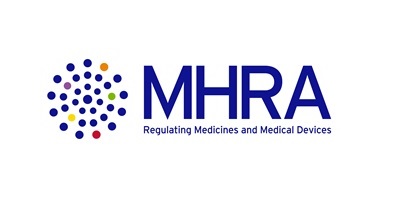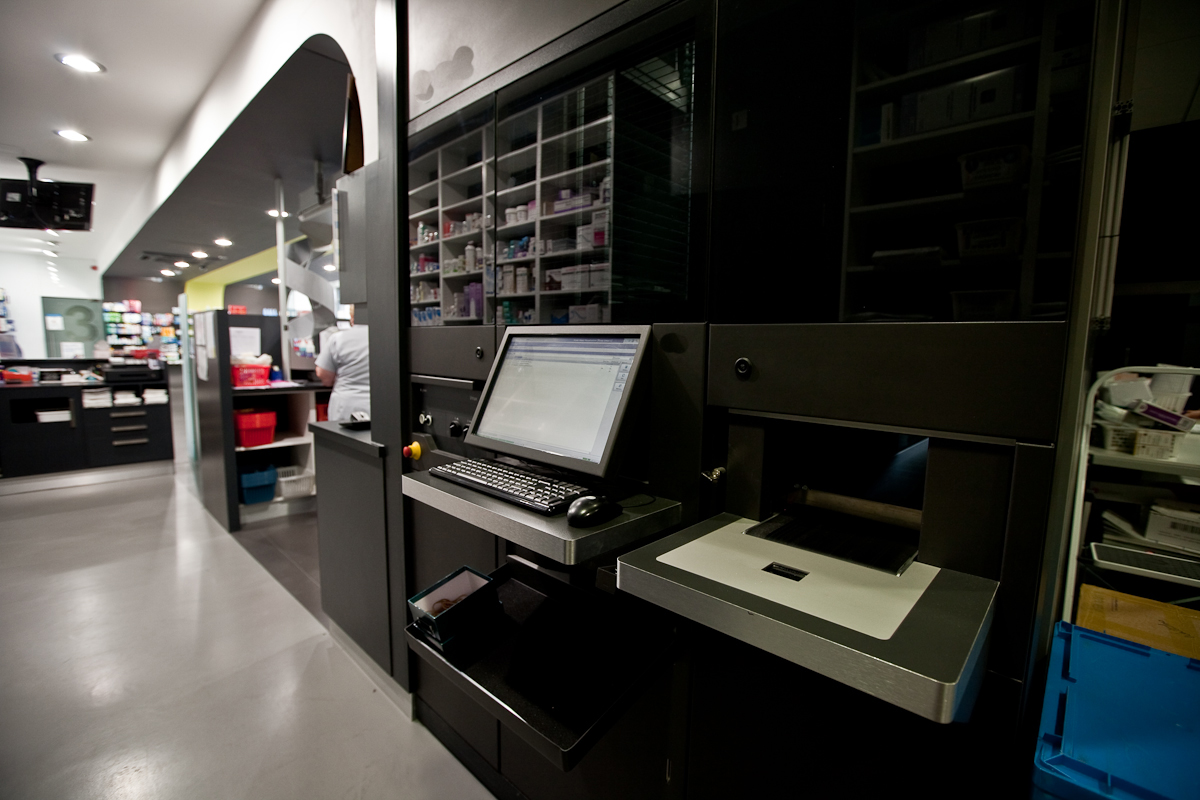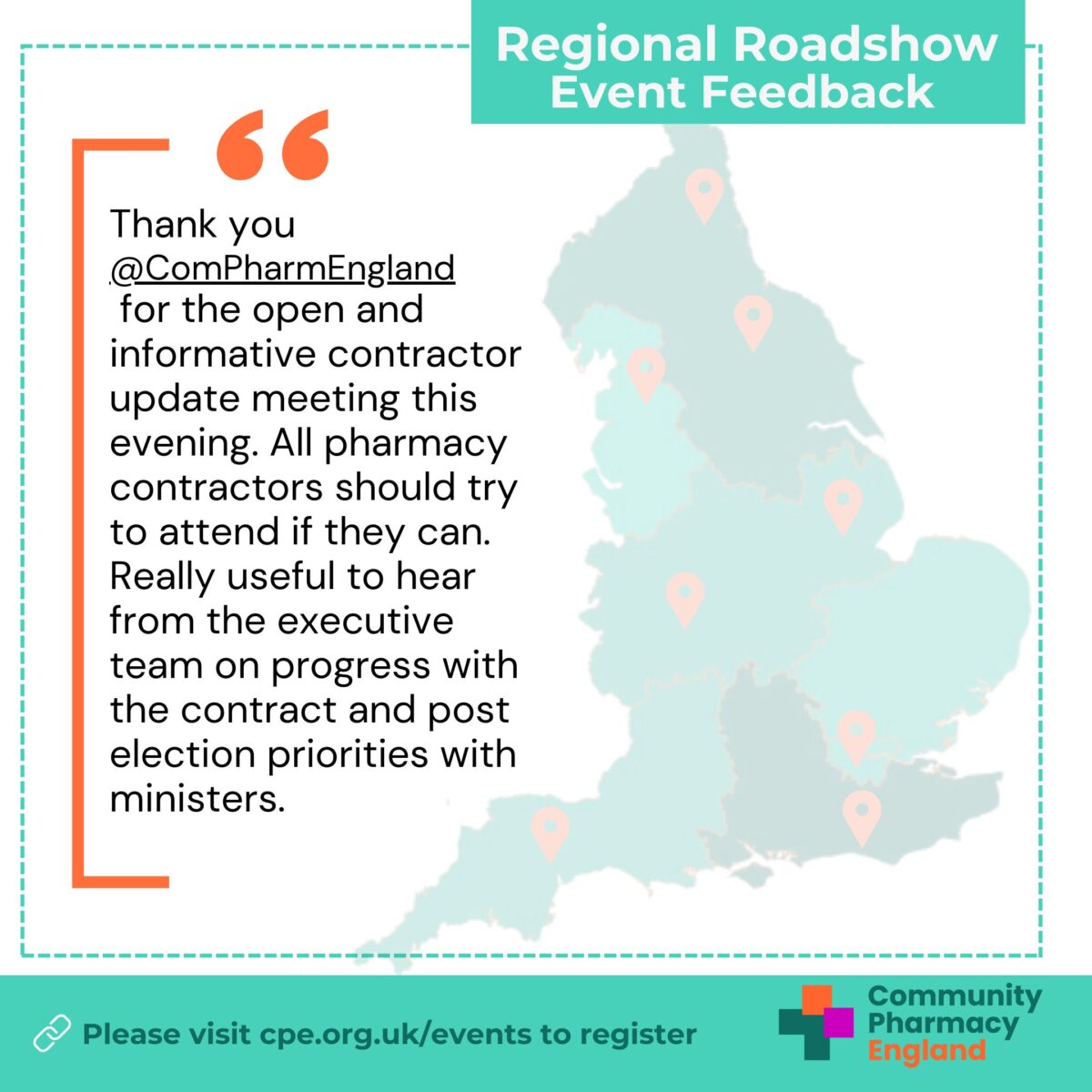Pharmacy Contraception Service – FAQs
Published on: 22nd November 2023 | Updated on: 24th June 2024
This page contains the answers to Frequently Asked Questions (FAQs) posed by pharmacy owners and LPCs on the Pharmacy Contraception Service (PCS).
Click on a heading below for more information
Q. Is community pharmacy able to initiate oral contraceptives as part of the service?
Yes. Initially the service involved community pharmacists providing ongoing management of routine oral contraception (OC) that was initiated in general practice or a sexual health clinic. The service was subsequently extended to enable community pharmacists to also initiate oral contraception, via a Patient Group Direction (PGD), and provide ongoing clinical checks and annual reviews.
Q. Is provision of emergency contraception part of the PCS service specification?
No. While competence around emergency contraception is part of the requirement of the service, supply of emergency contraception is not part of the service. The supply of emergency contraception could be a prompt to discuss initiation of regular contraception with the patient.
Q. If we do not want to provide initiation of OC, can we continue to just provide on-going supplies of OC only?
No. With the extension of the service, the amended service specification requires pharmacy owners to offer consultations for both initiation of OC and for ongoing supply of OC.
Pharmacy owners who previously registered to provide ongoing supply and who do not wish to provide initiation of OC will need to deregister from the service via the NHS Business Services Authority’s (NHSBSA) Manage Your Service (MYS) portal and provide a month’s notice prior to cessation of the service.
Q. Is provision of the service mandatory?
No. This is an Advanced service, so pharmacy owners are free to choose if they wish to provide the service.
Q. Can distance selling pharmacies provide the PCS?
Yes. A distance selling pharmacy (DSP) can provide the service. The DSP must fully meet the requirements for the provision of the PCS, which includes the consultation room requirements.
Q. Do I need to update my pharmacy’s NHS Profile Manager to say the pharmacy is now providing the PCS?
Yes. The pharmacy’s NHS Profile Manager will need to be updated to indicate that the service is provided, as this is a service that individuals, general practice, sexual health clinics (or equivalent) or NHS 111 can refer themselves/people into. A service finder, on the NHS website, also lets members of the public and healthcare professionals search for a pharmacy that offers the service and this tool is informed by the information on your NHS profile.
Q. Can we advertise or promote the PCS?
Yes. The service can be actively promoted to the public by pharmacy owners. Resources to support this can be found in the Resources section of the Community Pharmacy England PCS webpage.
Q. What insurance should you have for the PCS?
Advice should be sought from your indemnity insurance provider.
Q. Are there any resources available to support the engagement of general practice teams and sexual health clinics?
Yes. A general practice Briefing and a sexual health clinic Briefing is available on our PCS webpage.
Q. My pharmacy has an exemption from NHS England on the requirement to have a consultation room. Can I therefore, provide the service from a designated area in the pharmacy or outside my pharmacy?
No. It is a requirement of the service specification for pharmacies to have a consultation room which meets the requirements in the Terms of Service to provide the service.
Q. Is there an IT system to support the service?
Yes. NHS England have been working with IT system providers to incentivise them to develop IT systems to support pharmacy services. Pharmacy owners will need to provide the service using NHS assured IT solutions that meet the minimum digital requirements of the service. A list of the current options is available via our webpage about Pharmacy services IT requirements.
An application programming interface (API) to facilitate transfer of data into the NHSBSA’s MYS platform to support claims for payment has also been developed and will assist the automatic submission of data on service provision and claims for payment.
Q. Will NHS England cover the cost of procurement of an appropriate IT system to provide the service?
Procurement of IT systems to support the service is the responsibility of the pharmacy owner.
Q. If a pharmacy does not have a consultation room, but has access to an appropriate room twice a week are they still ineligible for the service?
Yes. It is a requirement of the service specification for pharmacies to have a consultation room on the pharmacy premises which meets the requirements in the Terms of Service to provide the service.
Q. Are there any additional requirements to consider beyond those of the Terms of Service for our consultation room?
Yes, as blood pressure measurements may need to be undertaken, the consultation room should also comply with the following requirements:
- when measuring blood pressure, the person must be able to rest their arm on a table / bench at a suitable height; and
- it must have IT equipment accessible within the consultation room to allow contemporaneous records of the consultations provided as part of this service to be made.
Q. Do I need to provide the service for all the hours that my pharmacy is open?
No. Pharmacy owners can decide when the service will be provided during their opening hours.
Q. What do you advise to those pharmacists not wishing to provide the service on moral or ethical grounds?
The General Pharmaceutical Council (GPhC) has previously produced guidance on religion, personal values and beliefs. All pharmacy professionals and pharmacy owners are encouraged to be familiar with this guidance to support their provision of good decisions and person-centred care.
Q. Can pharmacy staff other than a pharmacist provide the service?
No. As initiation and ongoing supplies of OC are provided under the authority of PGDs, the associated regulatory requirements mean the service can be provided by any practitioner listed in the Qualifications and professional registration section of the PGD. This only lists community pharmacists.
However, where body mass index and blood pressure measurements are performed within the pharmacy, these can be conducted by the pharmacist as part of the consultation or by a suitably trained and competent member of the pharmacy staff in advance of the pharmacist consultation. Pharmacy staff includes pharmacists, pharmacy technicians and other non-registered members of the pharmacy team.
Q. Can trainee pharmacists provide this service?
No. Currently only pharmacists can provide supplies of OC as part the service. Trainee pharmacists that are suitably trained and competent can provide body mass index and blood pressure measurements, where needed, in advance of the pharmacist consultation.
Q. We have a BP monitor described as recommended by NICE but it is not validated by the British and Irish Hypertension Society. Can we use this for blood pressure measurements as part of the service?
No. Blood pressure monitors used to provide the service must bevalidated by the British and Irish Hypertension Society.
Q. Will any equipment be provided to support the service?
The responsibility of purchasing equipment to provide the service sits with the pharmacy owner.
Q. How often does calibration of the equipment need to occur?
The calibration of equipment used to provide the service should be conducted in line with the manufacturer’s instructions.
Q. Is there a recommended IT provider I should use?
No. Each NHS assured IT system has been tested in, collaboration with NHS England and the NHSBSA, to ensure the minimum digital requirements of the service have been met. We cannot recommend or influence the choice of IT system that a pharmacy owner chooses to use. This is a commercial decision for each pharmacy owner to individually make.
Q. Can I choose not to use an IT system when providing the service?
No. Pharmacy owners must use an NHS assured IT system to support the PCS.
Q. Do pharmacy staff providing the service have to complete all the appropriate training listed in the service specification to provide the service?
No. The service specification requires pharmacy owners to ensure that pharmacists and any pharmacy staff providing any aspect of the service are competent to do so in line with the specific skills and knowledge in the service specification and the relevant PGDs.
Q. Is there any mandatory training required as part of service provision?
Yes, pharmacists providing the service must have completed one of the recommended Safeguarding Level 3 training options OR have direct access to professional advice from someone who can advise on Safeguarding at Level 3.
Q. Is there a specific competency assessment that I must use for the service?
No, pharmacists are free to choose how they demonstrate competency and options that could be considered, are available on the Community Pharmacy England PCS webpage.
Q. Is there a defined period after which training or competency assessments need to be repeated?
No. Pharmacists providing the service will be personally responsible for remaining up to date with the skills and competencies identified in the service specification and associated PGDs.
Q. How do pharmacy owners sign up to provide the PCS?
Pharmacy owners can sign up to provide the service by completing a registration declaration on the NHSBSA’s MYS portal. Pharmacy owners who were already registered to provide the Tier 1 service will need to ‘opt-in’ to provide the extended PCS between 1st December 2023 and 23:59 on 29th February 2024.
Q. What people are eligible to access the service?
People seeking to be initiated on an OC, to restart an OC or seeking to obtain a further supply of their ongoing OC in line with the PGD protocol, and as follows:
- For combined oral contraceptive (COC) – age from menarche to up to and including 49 years of age; or
- For progestogen only pill (POP) – age from menarche up to and including 54 years of age.
Q. How will I know that a person is due for a review or subsequent supply of OC?
Pharmacists are encouraged where they have previously provided an OC supply to check the person’s patient medication record or where a supply was not made at the pharmacy, to check the individual’s last dispensed medication record via the National Care Record Service. If still unsure, the pharmacy could contact the person’s general practice or sexual health clinic to confirm, where applicable.
Q. If an individual has had a gap in their OC cycle, can we still make a supply of their original prescription as part of this service?
Yes. As the service now includes initiation of OC, people who have had a gap (of any duration in length) in their OC cycle, can be re-initiated on their original contraceptive as part of this service.
Q. Are individuals who may not be registered with a general practice eligible for this service?
Yes. Where an individual is identified as suitable for the service, but is not registered with a general practice, the service can still be provided. The individual should be provided with the results of any biometrics measurements undertaken and with information on how to register with a local practice.
Q. Can we offer this service to people under 16 years of age?
Individuals under 16 years of age who meet the inclusion criteria for the service and are assessed as competent using Fraser Guidelines can be provided the service. If the individual is less than 13 years of age, the pharmacist should speak to the local safeguarding lead and follow the local safeguarding policy.
Q. Can we supply an oral contraceptive if the individual is not using it for contraceptive purposes, e.g. if they are taking it to regulate their periods, or for acne?
No. The service is a contraception service and the inclusion criteria for the service do not include other uses such as the management of bleeding, management of acne etc. The PGDs can only be used to provide supplies to individuals wishing to obtain an oral contraceptive for contraception purposes. Individuals seeking oral contraceptives for other conditions, should be referred to their general practice.
Q. How will people know about this service?
Public-facing promotional materials for community pharmacies, sexual health clinics and general practices are downloadable from the PCS service page.
Q. What is the recommended retention period for the consultation records in this service?
Records of the reimbursement data reported to the NHSBSA’s MYS portal should be retained for three years for post payment verification purposes. No retention period has been specified within the service specification for the consultation records, so it would be for the pharmacy owner, as the data controller, to decide on retention periods beyond the requirements related to remuneration.
Pharmacy owners should ensure any retention periods are be in line with Records Management Code of Practice for Health and Social Care.
Q. Can I provide the service off-site?
No.
Q. Can the service be provided remotely?
Yes, remote consultations are permitted to be used to provide the service where assessed as clinically appropriate by the pharmacist.
When undertaking remote consultations, the pharmacy owner must ensure that there are arrangements in place at the pharmacy which enable staff to communicate confidentially with the person receiving the service by telephone or another live audio link and via a live video link.
Q. Do I have to provide the person’s general practice with the outcomes of their consultation?
If the person provides consent to share the outcome of the consultation with their general practice, a notification should be sent via NHSmail or other secure digital mechanism.
Q. The individual wants to know what information will be shared with their general practice, where can I find this?
The information to be sent to the general practice can be found in Annex B of the service specification.
Q. How does a pharmacy confirm the NHSmail address for a general practice they do not usually communicate with?
Pharmacies can use the NHS Service Finder to look-up non-public email and non-public telephone numbers (where available) for general practices. Pharmacies should then confirm with the practice that the identified email address is suitable as a secure email that they can use to send notifications or referrals to.
Q. Has communication taken place with general practice and sexual health clinics to make them aware of this community pharmacy service?
Yes. NHS England has engaged representatives of general practice and sexual health clinics about the service requirements and has worked with the General Practitioners Committee (GPC) of the British Medical Association. NHS England will do further work with general practice and sexual health clinics to raise awareness of the service once community pharmacy has had an opportunity to consider and take up the service. Community Pharmacy England will also discuss the service with the GPC and resources to help brief general practice and sexual health clinic teams are available on our PCS webpage.
Q. If I have a safeguarding concern regarding an individual accessing the service, who should I contact?
If a pharmacist is concerned about a potential safeguarding issue, then they should contact their local safeguarding team and follow any appropriate action, where necessary, in line with local processes. Ahead of provision of the service, pharmacy owners should confirm that the contact details of local safeguarding teams are documented and available for pharmacists to refer to in the pharmacy.
Q. I have discussed the option of long acting reversible contraception (LARC) with the individual and they wish to take up this option. Where do I refer them to?
Ahead of provision of the service, pharmacy owners should confirm clinic locations that individuals who want a LARC can be referred to locally. Pharmacies can use the NHS Service Finder to look-up local sexual health service provider locations (where available) to be able to highlight these to the individual. The individual’s general practice may also be able to provide LARCs. It may be suitable to provide bridging OC to meet the individuals immediate contraception needs until they are able to get an appointment.
Q. Can referrals to the service be made from other NHS service providers other than general practice and sexual health clinics?
Yes. Referrals can be in the form of active signposting.
Q. If a person refuses to have the consultation outcomes shared with their general practice, can they still access the service?
Yes. Where an individual does not consent to consultation outcomes being shared with their general practice, no notification information should be sent.
Q. Do I need to undertake blood pressure and body mass index (BMI) checks for all consultations?
No. BMI and blood pressure measurements are only required for initiation and ongoing repeat supplies for combined oral hormonal contraception which is in line with NICE guideline 136.
Q. Where a blood pressure reading, weight, height and/or a BMI is provided by an individual but is not recent, can the pharmacist reject these and request updated readings are undertaken?
Yes. While a person accessing the service may offer their own weight, height, BMI and blood pressure measurements, it is for the pharmacist providing the service to determine if these are clinically appropriate and whether these may need to be updated.
Q. Do pharmacists have to undertake blood pressure, weight and height measurements and/or BMI calculations or can another pharmacy team member perform these?
Where BMI and blood pressure measurements are performed within the pharmacy, these can be conducted by the pharmacist as part of the consultation or by suitably trained and competent pharmacy staff in advance of the pharmacist consultation.
Q. Our local practices only usually provide six months of OC. Do we need to stick to the same duration of treatment?
No. Repeat supplies of up to 12 months duration can be made, and unless there are reasons not to, such a duration of supply should be considered in line with the Faculty of Sexual and Reproductive Healthcare (FSRH) guidance.
FSRH Clinical Guideline: Combined Hormonal Contraception (January 2019, Amended October 2023)
FSRH Clinical Guideline: Progestogen-only Pills (August 2022, Amended July 2023)
Q. Our local system is concerned that issuing 12 months of OC may result in medicines waste and have suggested pharmacies only issue six months at a time. Do we need to adhere to local system guidance on the duration of treatment for this service?
FSRH guidance advises that up to 12 months duration can be made, unless there are reasons not to. Supplies should depend on the person’s preference and their anticipated use. Restriction of the length of supply could result in unwanted discontinuation of the method and increased risk of pregnancy. Although there could be some potential wastage, the cost and use of resource associated with frequent follow-up appointments are avoided.
Q. Is there a restriction on the number of times an individual can come back for a repeat of the service?
No. Individuals can continue to used the service for as long as they continue to meet the inclusion criteria for the service and a supply is confirmed as clinically appropriate by the pharmacist providing the service.
Q. If an individual chooses to use the service, will there be any impact to their registration with their general practice if this was the only current service they accessed from their general practice?
No. Use of the service supports reduction of workload in general practices and allows greater opportunities for general practice colleagues to focus on more complex cases.
Q. Do I have to supply the same brand of OC as the person had in their initial supply?
No. It is recommended that repeat supplies should be made in line with the person’s previous supply, e.g. in the instance that a branded product has been supplied for clinical reasons such as an allergy to product constituents. However, if there are supply issues with the original brand, the repeat supply can be made from an equivalent brand/generic equivalent of OC. Pharmacy owners should follow any medicines formulary requirements of their local integrated care board.
Q. The required training for the service includes emergency contraception training. Can you confirm if this will be a mandatory component of the service?
No. Provision of emergency contraception is not part of the service.
Q. Do the PGDs cover supplies for all oral contraceptives listed in FSRH guidance?
No. The current PGD for POP does not include drospirenone only oral contraception, as detailed in the FSRH POP guideline. At the time of the PGD’s publication, there were no UK licensed formations available. The PGD will be reviewed as/when this position changes.
The PGD for COC does not include Cyproterone with ethinylestradiol (co-cyprindiol, brand leader Dianette). This is licensed as a second-line treatment for women with severe acne or moderately severe hirsutism. Co-cyprindiol provides effective contraception in women who require it to treat androgen-sensitive conditions, but it should not be used solely as a contraceptive has therefore, not been included in the PGD.
Q. What does the set-up fee cover?
The set-up fee covers costs including creating an SOP for the service and training staff who will be involved in providing the service.
Q. How often should claims be made for the service?
Claims for payment should be submitted within one month of, and no later than three months from the claim period for the chargeable activity provided. Claims which relate to work completed more than three months after the claim period in question, will not be paid.
Q. Where the pharmacy undertakes a blood pressure check as part of the PCS, can we claim a hypertension case-finding service clinic blood pressure fee as well as a fee for the PCS consultation?
No. Pharmacy owners may not claim twice for the same activity.
Q. Where the pharmacy undertakes a blood pressure check as part of the PCS and identifies that the person has high blood pressure, can the pharmacy offer ambulatory blood pressure monitoring (ABPM) and be remunerated for this if they also offer the hypertension case-finding service?
Yes. Where an individual is identified through provision of a blood pressure measurement during PCS as having high blood pressure and the pharmacy also offers the hypertension case-finding service and the individual meets the inclusion criteria, then the second stage of this service can be offered. In this instance, where the person accepts the provision of ABPM, the pharmacy owner can claim a fee associated with provision of the ABPM, but not for the clinic blood pressure measurement.
The person will need to be referred for an alternative contraceptive in this instance, as this is an exclusion criterion in the appropriate PGD for the PCS.
Q. If a pharmacist decides it is not clinically appropriate to make a supply of an OC, can a consultation fee still be claimed?
Yes. The consultation fee is to fund the time associated with provision of the consultation and is not dependent on the outcome of the consultation. It is also important to remember that where no items are supplied to the person, that the reason for not making a supply is captured within the clinical record for the service.
Q. If there are manufacturing problems or a change in demand, resulting in an OC only being available above the set Drug Tariff price, where the OC is supplied as part of PCS, is reimbursement in line with any concession price granted?
Yes. Where a price concession has been granted for specific strengths of a product, this concession will apply to those specific strengths of products supplied as part of this service. Concessions will only apply to the month in which they are granted according to the usual Drug Tariff arrangements.
Q. Do people using the service have to complete any exemption declarations?
No. Prescription charges are not relevant to the provision of this service and an appropriate patient declaration is not required.
Q. Can we temporarily switch off the service if we need to due to heavy workload, e.g. holiday times, flu season?
Where a pharmacy owner needs to temporarily suspend the service, they will need to update their service availability on the service profile of the NHS website using NHS Profile Manager. They should also inform their general practices and local sexual health clinics of the temporary suspension and provide some indication of when the service will recommence.
Q. How do I withdraw from provision of the service?
Pharmacy owners can withdraw from the service by providing one month’s notice and completing the PCS withdrawn from service form on the MYS application.
For more information on this topic please email comms.team@cpe.org.uk













